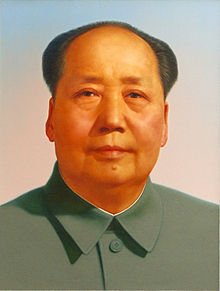|
|

RASHI of 6th-from-Chandra
Types of Emotional Distress and Animosity
6 unfair conditions,
servitude,
animosity,
illicit behavior,
divorce,
disagreement,
betrayal,
injury,
accusation,
ailment,
injustice,
criticism,
crime,
scapegoating,
blame,
mistreatment, exploitation,
ministries of
service,
medication,
military
6 conflicted environments,
warfare,
accusations,
addiction,
distress,
disease,
injury, grievance,
reasonable resentment,
misuse
[Chandra-Mesha]
Underlying emotional distress often triggered during
Vimshottari
Bhukti of Budha.
Communications technology, verbal and written,
messaging modalities,
especially expressing resentful grievance
[Kanya] may be the method by which
emotional conflict emerges,
according to the Learning Plan.
Generally,
the
emotionally adversarial conditions for [Chandra-Mesha]
are characterized by logical argumentation,
medical treatments,
accusations, harsh criticism,
and disease.
Agents may
include physicians,
drug-provisioners,
or those
who manage conflict. Temporarily distressed body areas tend to include the digestive system
particularly the colon.
[Chandra-Urisha]
Underlying emotional distress often triggered during
Vimshottari
bhukti of Shukra
Shukra detests open conflict. Emotionally toxic arguments tend to simmer
under the surface pleasantry.
Bright Bhrigu
tends
to produce temporary health imbalances rather
than social or verbal fighting.
Pronounced tendency to remedy with
self-medication.
Generally,
the emotionally adversarial conditions are characterized by bargaining and negotiating,
arrangements,
trusts and treaties.
Agents tend to conduct contractual processes including attorneys,
advocates,
brokers,
and advisers.
Body areas tend to include the visible genitalia of the sexual system
-
[Chandra in Kṛttikā - Pleyades]
surya is hostile toward Shukra.
According to the Learning Plan,
potential for intense
emotional conflict particularly on topic of self-entitlement vs.
adversaries who may use a debilitating narrative of share-the-glory.
-
[Chandra in Rohiṇī - Aldebaran]
Chandra has no enemies.
Less intense conflict,
but still some grievance on topic of equal peerage vs
parental caretaking.
-
[Chandra in Mrigashira - Invaka]
Mangala = neutral toward Shukra.
Less intense conflict,
but still some grievance regarding perceived
mismatch within relationships. Sexual-energy exchange may remediate most marital
disagreements.
EXAMPLE
women and sexuality cause oodles of trouble
-
Archbishop of Canterbury 1950- poet
Rowan Williams
[Chandra in publishing, explaining
Rohiṇī-3] conjoined
with
[Surya-yuti-Budha]
8] Ruler of 6th-from-Chandra
[1]
= Shukra-7,
identifying RW closely with matters of women,
contracts,
vows,
sexual relationships, equity,
fair deals.
-
RW was elevated to
elite leadership roles in the Church of
England. RW had plenty of grief
[6] WRT
womenfolk
and sexual practice.
-
RW proposed that ordained women
[Shukra-7
ordering
vows] be
eligible for promotion to the rank of bishop. Furthermore, he opined that LGBT+ worshippers
should be
granted equity within the spiritual communion.
The ensuing conflict nearly
created a schism [6] in his Church. The battle pitted punitive,
excluding believers against practitioners of the Christian principles of
inclusion and equality.
Much to RW's despair,
the excluders seem to have
won.
[Chandra-Mithuna]
Underlying emotional distress often triggered during
Vimshottari Periods of
Mangala
Budha vs Kuja = an unbalanced pair.
- All-action Kuja intensely dislikes all-talk chatty Budha
- Yet, Budha = neutral news-reporter toward warrior Kuja.
-
Vṛścika-Kanya 3/11 = profitable pairing.
- However,
Vṛścika-Mithuna 6/8 is volatile.
As a result, [Chandra-Mithuna] may refrain from hard combat with enemies,
preferring to use wordy arguments.
The enemy becomes increasingly frustrated as the native successfully dodges
direct attacks. See example
Isaac Newton below.
Generally,
the emotionally adversarial conditions are characterized
by mysteries,
captivating secrets, hidden relationships and masked assets
Agents and inimical environments are those who hide,
obscure,
disguise, veil,
and camouflage.
Emotional distress may arise in body areas related to Vrischika,
including hidden cavities,
reproductive organs,
and the anus.
-
[Chandra in Mrigashira - Invaka] Mangala
is friendly toward Mangala. Less intense conflict,
but still some
grievance toward other fighters,
such as athletic competitors.
-
[Chandra in Arudra - Orion]
Ambitious Rahu is normally able to work with any partner,
including
Mangala. Less intense conflict,
but still some grievance against
aggressors.
-
[Chandra in Punarvasu - Yamaka]
Guru is friendly toward Mangala. Less intense conflict,
but still
some grievance toward those who solve problems with physical force.
EXAMPLE
-
POTUS-26 National Parks 1858-1919
Theodore Roosevelt
[karmesha Kuja-Dhanus-11 occupies explosive-disguising Pūrvāṣāḍhā-4] TR dealt with emotional conflict by
fighting,
championing,
and violent exercise. He wrote
[Mithuna-Soma] and published extensively about his high-visibility [Kuja rules-10] adventures and invasions, he blustered and guffawed,
then he died age 60 of blood infection -- Mangala rules 6th-from-Chandra.
EXAMPLE
Affliction to the professional reputation
[Warrior
Mangala in bhava-3
karmesha ] publications
In the modern age,
Newton
might be considered a / rage-o-holic /
-
de Mundi Systemate 1642-1726
Isaac Newton
-
During Shukra-Mangala bhukti
[age 57,
r-K return]
Newton - known for his towering rages - launched a bitter attack against
his adversary Gottlieb Leibniz WRT
who
indeed had invented the calculus.
- Friends of both scholars had asked them to stop this long-lasting diatribe,
but Newton apparently could not stop [Budha-Dhanus-Mūla ].
The accusations
[6]
sullied the dignity of both parties,
and left the intellectual legacy of Leibniz in permanent disrepute.
6th-from-Chandra = bhava-10 Vṛścika.
- Combative but powerful mulatrikona
[Mangala-Mesha]
furthermore in 6th-from-10th,
suggesting that
matters of public reputation and respect were
especially contentious and even vicious for him.
[Chandra-Karkata]
6/8. Although Chandra has no enemies,
widening-wisdom Brihaspati intensely dislikes parochial, habitual Soma.
Underlying emotional distress often triggered during
Vimshottari Periods of Guru
Generally,
the emotionally adversarial conditions are characterized by
doctrine,
ideology,
theory,
first principles,
paradigm of belief
Agents and inimical environments tend to focus on indoctrination,
preaching,
professorship,
pontification, guru-roles.
Emotional distress may emerge via Dhanus-related body areas such as sacral
plexus,
pelvis,
and
abdomen.
-
[Chandra in Punarvasu - Yamaka]
Guru is friendly toward Guru. Less intense conflict,
but still some grievance
toward incorrect indoctrination.
-
[Chandra in Pushya - Sidhya]
Shani = neutral toward Guru.
Less intense conflict,
but still some grievance toward doctrinal or ideological
adversaries.
-
[Chandra in Aśleṣa - Naga]
Budha is inimical toward Chandra. According to the Learning Plan,
intense
mental-verbal conflict may arise due to emotionally disordered beliefs
about the adversary.
[Chandra-Simha]
Underlying emotional distress may be triggered during
Vimshottari Periods of Shani
6/8 rulers Surya and Shani are notorious
arch-enemies.
- The problem is Simha-Makara 6/8. not Simha-Kumbha 1-7.
- Makara
represents fixed class structures while Surya represents individual
entitlements.
- Together,
simha-and-Makara form a permanently unbalanced narrative
within the human drama.
Generally,
the emotionally adversarial conditions are characterized
by rigidity and stiffness,
bureaucratic rules, elderly persons, harsh
consequences for infringement of laws and policies.
Body areas tend to
include bones, ligaments,
sinews, knees and upper legs.
-
[Chandra in Magha - Regulus]
Ketu disregards Shani. Less intense conflict,
but still some grievance toward
rigid,
punitive,
class-based, hierarchical systems.
-
[Chandra in Pūrvaphalgunī - Yoni]
shukra
+ Shani = best-friends. Less intense
conflict.
If Makara is empowered,
may give a tendency to mix charm with
crime.
-
[Chandra in Uttaraphalgunī - Aryaman]
surya = mutual
adhi-shatru toward Shani.
According to the Learning Plan,
potential for intense conflict due to
pushback against law-and-order suppression of individual creativity- intelligence.
For [Chandra-Simha] an
elder spouse - or a legal profession - can help to balance one's natural
resentful feelings toward bureaucrats,
officials,
and punitive misuse of the
law. [6-Makara]
EXAMPLE
wood [Shani], elderly persons, harsh consequences for infringement of
unfair laws
and discriminatory policies
during his Guru-Shani bhukti
coinciding with the final one-third of his
Sade-Sati via
Kanya-9.
[Chandra-Kanya]
Underlying emotional distress often triggered during
Vimshottari Periods of Shani
Budha ruler of Kanya = mitra-graha with Shani. Less
psycho-emotional friction,
but perhaps more mental friction.
Stress factors may include massive participation systems,
marketplace economics,
network ed-gridworked processes,
science
[especially the lower expressions,
such
as empiricism] necessity of fundraising.
Enemies may place profits
[Kumbha] above the
well-being of the workers
[Chandra-Kanya]
[emotionally-sourced
distress may affect body areas such as nervous system,
calves,
ankles,
skin.
-
[Chandra in Uttaraphalgunī - Aryaman]
surya= mutual
adhi-shatru toward Shani.
According to the Learning Plan,
potential for very intense conflict due to law-and-order suppression of individual creativity-
intelligence.
-
[Chandra in Hasta - Savitra]
Chandra = neutral toward Shani. Less intense conflict,
but still some grievance due to imbalance of home-needs vs social-rules.
-
[Chandra in Chitra - Spica]
Mangala = neutral toward
Shani. Less intense conflict,
but still some
grievance toward fixed,
rigid,
change-resistant elders and their brittle
systems.
EXAMPLE
[Chandra-Kanya] =
[Chandra in Uttaraphalguni] =
[Chandra in
classroom-6]
-
POTUS-07 Indian Removal 1767-1845
Andrew Jackson.
AJ suffered lifetime chronic digestive ailments. Father died while Andrew
was in utero. [Surya-12] Mother died while nursing
wounded soldiers during the Revolutionary War.
[Chandra-6]
-
During Shani-Shani svabhukti,
aJ himself very nearly died.
He experienced a
severe physical breakdown due to years of war,
the economic stresses of
slave-labor,
and brutal frontier medicine. Although he continued to suffer painful disabilities throughout his
nervous system and digestive system,
aJ recovered enough to serve eight
years as POTUS-07 during the remainder of Shani Mahadasha.
[Chandra-Tula]
Underlying emotional distress often triggered during
Vimshottari Periods of Guru
Shukra detests open conflict.
Whenever possible,
Shukra avoids social or
verbal fighting.
[Chandra-Tula]
prefers to negotiate a temporary
detente. Self-medication may provide the illusion of rebalance.
Full of friction,
periods of Guru tend to produce temporary [3] mental
illness or [6] physical illness- injury.
Generally,
the emotionally adversarial conditions are characterized
by dreams,
sleep,
trance,
imagination,
conceptual thought,
theory,
first principles,
research,
interior guidance, hallucination,
meditation,
distant lands.
Agents or agentive environments include provisioners of private interior
guidance,
actors on one of the astral planes,
dream interpreters and
clairsentients,
imaginary personages.
Distressed body
areas tend to include lympatic system,
feet,
and toes.
-
[Chandra in Chitra - Spica]
Mangala is friendly toward Guru. Less intense conflict,
but still some grievance
toward know-it-all persons,
preachers,
professors,
proselytes,
indoctrinators
-
[Chandra in Svati - Arcturus]
Rahu = neutral toward Guru. Less intense conflict,
but still some grievance
toward prophets,
seers,
sermonizers.
-
[Chandra in Viśākha - Rādhā]
Guru is friendly toward Guru .Less intense conflict,
but still some skirmishing about
ideology or doctrine
[Chandra-Vṛścika]
Underlying emotional distress often triggered during
Vimshottari Periods of
Mangala
Mangala controls both the core nature and the enemies. Emotionally-orginating
conflict
often takes a physical form. Less prone toward disease,
more prone toward
injury.
Generally,
the emotionally adversarial conditions are characterized
by competition,
championship,
pioneering,
fights,
sports,
primitive
behaviors.
Agents-and-environments include dominating persons,
bullies,
invaders.
Distressed body areas tend to include head,
skull,
muscles,
blood .
-
[Chandra in Viśākha - Rādhā]
Guru is is friendly toward Mangala. Less intense conflict,
but still some
grievance toward primitively physicalized actors,
combatants,
athletes.
-
[Chandra in Anuradha - Maitra]
Shani is terrified by Mangala's aggressions.
More intense
conflict,
with grievance expressing as litigation, locked-in frustration,
or bitterness
toward illegal aggressors.
-
[Chandra in Jyeṣṭha - Antares]
Budha is neutra toward Mangala. Less intense conflict,
but still some
grievance toward war and warriors,
criminal use of weapons,
or illicit use of
physical force.
Can produce harsh verbal criticism of the adversary.
[Chandra-Dhanus]
Underlying emotional distress often triggered during
Vimshottari
bhukti of Shukra
Shukra rules both the core nature and the emotional enemies.
Pronounced tendency to
self-medicate as a method of balancing awkward relationships.
Generally,
the emotionally adversarial conditions are characterized
by cattle and animal herds,
milk,
treasuries of value,
sensual
pleasures,
song and voice.
Agents tend to be collectors,
bankers,
conservationists,
preservers,
librarians,
database maintainers, geneticists,
breeders, linguists, historians,
memory-keepers,
reader-writers, the clergy, storage warehousers,
the family legacy,
singers,
speakers,
and value-assessors
[inter alia]
Distressed body areas may include teeth,
naeck, jaw,
tongue,
mouth, eyes.
-
[Chandra in Mūla - Vichruta] Ketu
disregards Shukra. Less intense conflict,
but still some grievance toward
attorneys,
brokers,
deal-makers,
partners.
Potential for temporary break-up of alliances.
-
[Chandra in Pūrvāṣāḍhā - Apah]
shukra is friendly toward Shukra. Less intense conflict,
but still some
grievance toward Shukra-karaka people such as feminine partners. According to the Learning Plan,
potential for temporary sweets-addiction
-
[Chandra in Uttarāṣāḍha - Vaishva]
surya is
very
hostile toward Shukra.
More intense conflict,
albeit often
internalized into an interior argument within oneself,
perhaps self-blaming
about a relationship.
EXAMPLE - tongue [Urisha]
MKD continued stress-relief [6] habits [Chandra]
of self-medication via
substance-smoking and
alcohol well into his 70's, even after medical diagnosis of
stage-4 squamous cell carcinoma = HPV tongue
cancer . [Urisha 6th-from-Chandra]
- Nevertheless, Shukra-3 [cinema, business, producer role] = karmesha .
- His 15+-years survival after diagnosis = Shukra rules gainful
11th-from-Chandra + 10th-from-6 MKD became a spokesperson for HPV-cancers
healthcare
- MKD exploits never derailed his career.
- Publicity [3]
surrounding both self-abusing addictions promoted his
notoriety and advanced his financial standing [10]
- His choice to serve as public spokesman for HPV-cancers such as
Tongue-cancer enhanced leadership reputation [10].
[Chandra-Makara-Draco]
Underlying emotional distress often triggered during
Vimshottari
Bhukti of Budha.
Generally,
the emotionally
adversarial conditions are characterized by conversations,
messages,
meetings, ensemble,
siblings and cohort, evangelism.
Agents may be media-messengers,
team managers,
businesspeople,
administrators,
publishers,
anyone in the realm of
radio-television-internet-cinema-magazines,
those in
sales-marketing-advertising-publicity,
talking-heads of various kinds
Distressed body areas tend to
include hands-and-fingers,
wrists-and-elbows,
shoulders-and-clavicle, ears,
lungs-and-breathing.
EXAMPLE
[Chandra in Dhaniṣṭha - Delphinus]
Chandra in
classroom-10]
++ ruler of inimical 6th-from-Chandra =
[Budha-Karkata] =
[Budha in bhava-4]
+
[Pushya-Budha-yuti-Surya-Pushya]
[Chandra-Kumbha]
Underlying emotional distress often triggered during
Vimshottari-Dasha Periods of Chandra
Chandra has no enemies.
In general,
Chandra -Kumbha has a live-and-let-live approach with a remarkable
tolerance for betrayal and crime.
Nevertheless,
Chandra periods can signal disagreement within Chandra-
environments such as parenting,
policing,
sheltering,
protectionism,
routines.
[Chandra-Kumbha]
often has an unbalanced, yet accepting relationship to the habitual,
rhythmic
routines of one's own home culture.
Distressed body areas tend to include stomach and breasts.
-
[Chandra in Dhaniṣṭha - Delphinus]
Mangala = neutral toward Chandra.
Less
intense conflict,
but still some reasonable resentment with caretakers and police.
-
[Chandra in Sadachbia - Varuna]
Chandra = neutral toward Rahu
-- but Rahu appears to
threaten Chandra. Less intense conflict -- but perhaps a lingering,
suspicious,
distrustful feeling of being eclipsed by an impostor
-
[Chandra in Pūrvābhādra- Pegasus] Guru = neutral toward Chandra. Less intense
conflict but still some frustration against ethno-localists who
will not expand their worldview.
EXAMPLE of intense distress due to tabloid news coverage -- peaked during
Sade-Sati Kumbha
[Chandra-Kumbha]
[10]
[arranging-diplomatic
Dhaniṣṭha-3]
6th-from-Chandra contains 3- new-reporting contains
[nīcha-Kuja-yuti-Ketu]
in mutual-
drishti
with [Rahu-yuti-Shani]
[9, ecclesiastical doct
rine]
[Chandra-Meena]
ruler of
6th-from-Chandra]
Underlying emotional distress often triggered during
Vimshottari Periods of Surya
Toxic Simha environments suffer from a crippling pride.
the
adversaries engage in mistreatment
of others,
and their blaming behaviors are based
in vanity, entitlements,
and pride.
Learning Pathway may include umbalanced conditions in
Simha environments such as politics,
celebrity,
drama,
creativity,
romantic idealism, games,
poetics,
artistic genius, entitlement,
intelligence,
and uniqueness.
Enemies are confident,
intelligent,
theatrical,
masculine,
and determined
[Simha]. The relatively weaker,
passive,
astral Meena field may be attacked,
belittled,
accused,
scapegoated,
or harmed by patterns of
narcissistic contempt toward a weaker victim.
Agents may be entitled masculine figures such as kings,
aristocrats,
celebrities, gamblers,
persons who demand the center of attention, egoists,
intellectuals,
brilliant performers,
and naturally,
politicians.
Surya pitrikaraka suggests an inherently inimical
relationship with the father-figure's personality,
and his
kingly refusal to acknowledge the rights of others.
- If Surya,
mangala,
or Guru occupy their happy-place of Simha,
then the
brightly sparkling,
applauded adversaries may be celebrated and admired
persons.
- Kuja-Simha can be a hero.
-
Like the sun in the sky,
the Simha-phenomena are unbound by mortal
rules,
above it all.
Distressed body areas may include heart,
spine, eyes.
Propensity toward burning hot symptoms following unresolved emotional
conflict.
-
[Chandra in Pūrvābhādra- Pegasus]
Guru is friendly toward Surya. Less intense conflict,
but still some reasonable resentment against politicians,
showboaters,
center-stage romantics.
-
[Chandra in Uttarabhadra - Andromeda]
Shani= mutual
adhi-shatru toward Suryai.
According to the Learning Plan,
potential for very intense conflict regarding
inexcusable
selfishness or political crimes of the adversary.
Adversaries may assert a solar willpower which does not acknowledge the
Shani-ruled realms of law.
-
[Chandra in Revatī - Pashu] Budha is companionable with Surya. Less intense conflict,
but still some
frustration against entitled flamboyant celebrity-royalty personages, gamblers.
Vimshottari
Dasha period s
of the ruler of 6th-from-Chandra can be emotionally devastating
unless one is able to interpret the conditions of the
classroom.
Unrecognized emotional growth-challenges may cascade into
physical compensations,
creating physical pain as a
consequence of unseen emotional conflict.
Instructions of the curriculum may include disputes,
treachery,
broken promises; pain of dishonesty,
false accusations,
naegative criticism,
and showers of abuse in all forms.
The mistreatment whilst painful is meeting the subtle
expectations of the native; once recognized as "matching
energy" the suffering can be relieved by conscious
management.
Features of the adversarial experience include
-
6th-from-Chandra- past-life pre-incarnationally planned conflict embedded in
unrecognized negative expectations.
The expectations
once made conscious can be managed intelligently
thus lose their sting.
-
Emotional exploitation
-
Giving more nurturing that one receives in return
-
Exhaustion from psycho-electro-magnetic emotional overwork
-
victimization [being sacrificially eaten] through imbalance in emotional relationships
-
laborious,
invalidating, exhausting
Agents and Agencies of 6th-from-Chandra
Emotional Imbalance Typically,
at the beginning of the bhukti,
apredatory agent will arrive in the guise of the
characteristics of the planetary ruler of
6th-from-Chandra.
Surya Adversarial-Agent
Master of
Center-Stage Drama 6th-from-Chandra ruler = Surya.
Applies to [Chandra-Meena] only.
Typically,
the adversarial agent = a Surya-figure or Surya-environment.
Tends to be
a charming and self-entitled male.
The agent shares salient features with the personality
of one's father-figure.
The agent may be radiantly
bright,
confident,
and self-reflexive.
The agent may
seem handicapped by their demand for others to orbit around their light.
After a glittering period of romance
[Surya] the behavior of 6-agent may develop
abusive qualities due to their egocentric
self-righteousness. Typically a narcissistic
figure or environment. Look to the characteristics of Surya
in the nativity to discover the full profile of the
adversarial agency. Look for actors who objectify the Other within relationships, looking for a supply of admiration rather than equity.
Relief may be obtained via conscious
management of emotional expectations for balanced, exchanging,
or equal
engagement. Surya has no equal.
Chandra Adversarial-Agent
Master of
Stifling Home Routines 6th-from-Chandra ruler = Chandra.Applies to [Chandra-Kumbha]
only.
Typically,
the adversarial agent = caretaking parental Chandra-figure or a
domestic, ethnic, localized, habitual Chandra-environment.
Often but not
exclusively a feminine maternal figure who psychologically resembles one's
mother.
The agent may be exceptionally protective,
nurturing,
sheltering with heightened emotional
needs.
The agent may seem handicapped by their
parochialism. After a soothing period of secure
stability [Chandra] the behavior of this agent may develop
abusive qualities due to their electro-magnetic emotional neediness.
Look
to the characteristics of Shani in the nativity to
discover the full profile of the adversarial agency. Relief may be obtained via conscious
management of emotional expectations.
Mangala Adversarial-Agent
Master of
Dangerous Competition 6th-from-Chandra ruler = Mangala. Applies to [Chandra-Mithuna] and
[Chandra-Vṛścika].
Typically,
the adversarial agent = Mangala-figure.
The inimical figure tends to be
an athletic,
active,
forward-moving person.
Often a
younger male, less than forty years. Agent can also be
an immature hyper-competitive older male; or a female
athlete,
military officer; or other Martian persona.
The agent shares salient features with the personality
of one's brother-figure.
The agent may be exceptionally
dynamic, energetic,
and innovative with heightened
instinct to dominate and win.
The agent may seem
handicapped by their aggressiveness. After an exciting period of
physical
[often sexual] pursuit [Mangala] the behavior of this agent may develop
abusive qualities due to their embattled conquesting -
emotional, verbal,
or muscular. Look to the
characteristics of Mangala in the nativity to discover
the full profile of the agent. Relief may be obtained via conscious
management of emotional expectations.
Onset of the period of the
planetary ruler of the 6th-from-Chandra may signal emotional
betrayal,
broken contract = depending on the overall
6th-from patterns.
6th-from-Chandra ruler = Budha.
Applies to
[Chandra-Mesha] and
[Chandra-Makara-Draco].
Typically,
the adversarial agent = a Budha-figure.
Tends to be
a mentalized,
chatty,
commercial person.
Typically,
ayounger person of any gender, less than forty years
[but
can be any student,
or any youthful person,
or could be
a vociferous businessperson] .
The agent shares salient features with the personality
of one's brother-figure.
The agent may be exceptionally detail-oriented,
talkative,
and documenting
with heightened instinct to "talk shop" . The Budha-figure may seem to be
handicapped by an
inability to see the
forest for the trees.
After a discursive period of
conversation and debate
[Budha] the behavior of this agent may develop
abusive qualities due to their immature,
mercantile
focus on immediate details. Look to the characteristics
of Budha in the nativity to discover the full profile of
the agent. Relief may be obtained via conscious
management of emotional expectations.After a discursive period of
conversation and debate
[Budha] the behavior of this agent may develop
abusive qualities due to their immature,
mercantile
focus on immediate details. Look to the characteristics
of Budha in the nativity to discover the full profile of
the agent. Relief may be obtained via conscious
management of emotional expectations.
Guru Adversarial-Agent
Master of Expansive
Doctrine
6th-from-Chandra ruler = Brihaspati.
Applies to [Chandra-Karkata] and
[Chandra-Tula].
The adversarial agent is Typically,
aGuru-figure.
Tends to be
a philosophical, humanistic,
doctrinaire personality.
Typically,
alarge-sized person and typically male,
but
can be a jovial,
patronizing personality of any gender.
For one in the wifely-companion,
the Guru-agent is often the
husband. For one in the student role,
the Guru-agent is
often the professor.
The agent shares salient features with the personality
of one's preacher-teacher figures.
The agent may be exceptionally
inspirational with heightened instinct to preach.
The
agent may seemed handicapped by an excessively
theoretical perspective. After an expansive period of
theological or philosophical indoctrination [Guru] the behavior of this agent may develop
abusive qualities due to their dogmatism. Look to the
characteristics of Brihaspati in the nativity to
discover the full profile of the agent. Relief may be obtained via conscious
management of emotional expectations.
Shukra Adversarial-Agent
Master of the
Partnering Yoke 6th-from-Chandra ruler = Shukra.
Applies to [Chandra-Urisha]
and [Chandra-Dhanus].
Typically,
the adversarial agent = Shukra-figure.
Tends to be
a bargaining,
agreement-seeking personality
distinguished by a cloying sweetness.
Typically,
afemale
such as wife,
sister,
or woman co-worker,
but can be a
gracious and artistic personality of any gender. For the husband,
the Shukra-agent is often the wife.
The agent shares salient features with the personality
of one's sister-figures.
The agent may be exceptionally
partner-oriented with heightened instinct to maintain
the union"at any cost" .
The agent may seemed
handicapped by an excessive negotiation of the terms of
the contract.
After a harmonious period of diplomacy and accommodation [Shukra] the
behavior of this agent may develop abusive qualities due to their financial
materialism. Potential for conflict regarding sensual addictions. Look to the
characteristics of Shukra in the nativity to discover the full profile of the
agent. Relief may be obtained via conscious management of emotional
expectations.
EXAMPLE POTUS-17 Reconstruction 1808-1875
Andrew Johnson
[Shukra-Makara-1]
rules Rahu-Tula in
6th-from-Chandra
-
= Wifely ill-health.
For a husbandly Learner, [Shukra ruling 6th-from-Chandra] may indicate
a wifely pattern of illness and
dissatisfaction. However,
Rahu flourishes in any 6th-amsha. For most of her
adult life, Eliza McCardle suffered from lingering
tuberculosis.
-
Shukra yogakaraka rules 5-10,
showing Eliza's powerful
support for AJ's career as a harmonizer and arranger [Shukra].
-
For the final
three decades of her life, Eliza was often too sick to leave her bedroom.
However,
she wrote thousands of campaign letters and newspaper editorials
from her in-bed writing table. She served as AJ's most highly influential
political advisor
[Shukra-1 rules-5].
-
Shukra-1 shows AJ's core identity with his wife during
their 53-year marriage.
Advocacy [Shukra] for the suffering, mistreated, and
disadvantaged
EXAMPLE
USA-Gov-FL 1953- offshore finance
Jeb Bush
[Shukra-Meena] -
[Shukra-4]
+
[uchcha-Andromeda- Shukra-yuti-Mangala-Andromeda]
- JB = advocate for civil compassionate
treatment of illegal immigrant workers.
Shani Adversarial-Agent
Master of
Limitations 6th-from-Chandra ruler = Shani.
Applies to [Chandra-Simha] and
[Chandra-Kanya].
Typically,
the adversarial agency = a Shani-figure[s]
or a Shani-style
rigidly lawful environment .
Shani bhukti are long-lasting.
Having plenty of time to present themselves,
avariety of
agents
of the lawful social order may appear in
oppressive,
inimical roles.
Agents tend to be
sober and hardworking with a rather dour,
clay-like
personality and a systematic,
disciplined method.
The agent
is socially responsible and attuned to the masses of
common folk. This unfair agency may express inability to accommodate
individual emotional needs with mutual respect.Although the agent may seem grumpy and
taciturn,
they are also pragmatic and sensible. Shani operates at the
lowest common denominator.
Time and work
define Shani's reality.
He lives to earn survival. After a period of steady,
structural permanence based on
a shared work plan [Shani] the behavior of this agent
may develop abusive qualities due to their hyper-fixity
and firm resistance to change.
Look to the
characteristics of Shani to discover the
full profile of the adversarial agent=or-environment. Relief may be obtained via conscious
management of emotional expectations and beliefs about elders,
systems, hierarchies,
rules,
consequences.
The most growth-challenging
configurations for the Vimshottari periods of 6th-from-Chandra =
[Chandra-Mithuna] =
[Chandra in Mrigashira - Invaka]
= pada-3-4 only. Action-driven,
muscular Professor
Mangala is aggressively hostile toward the
perpetually chatty-argumentative talk-but-not-do
Professor Budha = Often the conflict has a physical element
due to Mangala's frustration[Chandra-Simha] portion
[Chandra in Uttaraphalgunī - Aryaman
pada-1]
6th-Agent-Shani the ruler of 6th-from-Chandra = mutual
adhi-shatru toward
Surya = very intense
conflict as punitive hani tries to impose governance
rules and consequences upon the double-Surya pada-1 of
brightly independent Uttaraphalguni[Chandra-Kanya] portion
[Chandra in Uttaraphalgunī - Aryaman
pada 2-3-4]
6th-Agent-Shani the ruler of 6th-from-Chandra = mutual
adhi-shatru toward
Surya = very intense conflict,
mainly verbal arguments Despite the fact that Professor Budha ruler of Kanya is
friendly with Professor Shani activates 6th-from-Chandra,
all portions of Chandra-Kanya have intense emotional conflict during the periods of
Shani .
The imbalance is due to"law-and-order" Professor Shani's internal hostilities with the more
independent-acting nakshatra rulers
Surya-Chandra-Mangala.
[Chandra-Vṛścika] portion
[Chandra in Jyeṣṭha - Antares] Mangala is
aggressively hostile toward Budha = more
intense conflict,
with the potential for vicious verbal criticism[Chandra-Meena] portion
[Chandra in Uttarabhadra - Andromeda]
6th-Agent-Surya
the ruler of 6th-from-Chandra = mutual
adhi-shatru toward
Shani = very intense conflict
due to Shani's attunement to Slow Time and massive systems
while the self-righteous Surya-agent is blinded by their own light and
exclusively concerned with Selfr.
|













 file update =
01-Mar-2026
file update =
01-Mar-2026